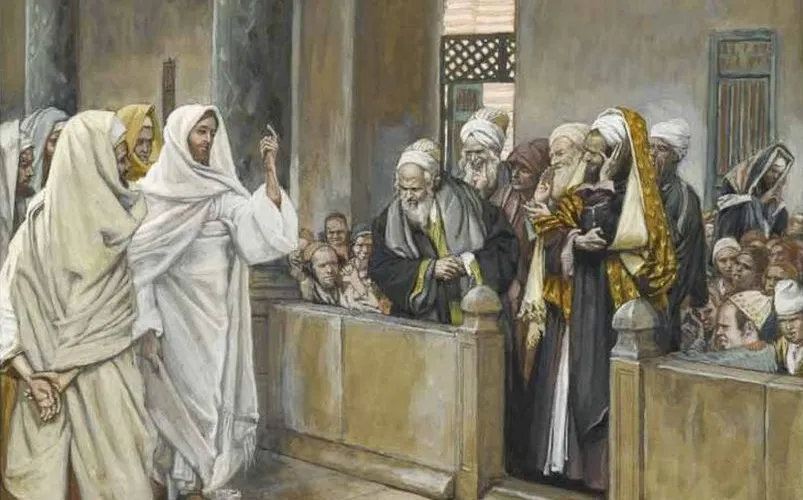Jijo Kandamkulathy, CMF
Claretian Publications, Macau
Gospel Reflection – Mk 12:28b-34
31st Sunday in Ordinary Time – Year B
The gospel passage today is a very positive debate on the essence of the Old Testament law. The context in which this debate emerges is essential in understanding the text and understanding its contemporary significance.
Jesus has made his entry into Jerusalem and stormed into the temple and chased the business people. The question that arose immediately was about his authority, and people challenged him. Since then, Jesus was in constant debate with Herodians, Pharisees and Sadducees, and some political opportunists. All the previous debates were with an idea to trap Jesus as the Jewish leaders of Jerusalem have not liked the arrival of this Galilean Rabbi. They are most likely afraid of an already explosive Jewish community catching this Galilean spark and fighting a battle with Romans that has no possibility of victory.
The teacher of the law debating with Jesus today, however, is not intending to trap Jesus. On the contrary, he is polite and appears genuinely interested in the teachings of this master and wants to learn. The question is, what is the greatest of all commandments in the law. The answer is clear, Love your God with all your soul, all your mind and with all your might. And Love your neighbour as yourself.” The teacher of the law was not only impressed but appreciated the answer. The respect was mutual too. Jesus also appreciated the man and said that he was close to the Kingdom of God.
The answer narrates the manners in which love is to be practised. They are connected with all human faculties. Love is to be expressed in our spirituality (loving with soul), to be communicated with creativity (loving with mind) and to be expressed in corporal acts of love (loving with might). The phrase redefines love from a mere feeling to an act of devotion, a rational, creative act and a physical act. Identifying spirituality as any one of these acts of love is to live incomplete discipleship. The essence of the law has been somehow lost in the details, and its expression had eventually turned out to be rigid and burdensome, which Jesus questions many times.
The lawyer’s question rings a bell in our ears. It could be modified as, “what is the essence or philosophy of my life,” or “What is humanity’s philosophy of life today?” Since the time of the French Revolution, Freedom, Equality, and Fraternity have emerged as the fundamental rights in most countries. Nevertheless, I believe that there is a distance between belief and practice. We can find tendencies to defeat, to make ourselves ‘more equal’, or find reasons to exempt ourselves from giving to others the freedom we ourselves enjoy, from respecting others with equal status, and from a fraternal relationship with others, in the name of religion, race, colour and or many other reasons.
The question also could be asked about the essence of Christianity? It is also love, forgiving, compassionate, self-sacrificing love. But, how easy it is to slip out of the evangelical ideal of love. It is not enough to have the habitual intention of the Church to love, but a personal commitment to the ideal of the gospel once and every time. All love has emotion, but it is not just a feeling. It is a cultivated virtue and a value to be practised. It does not require a Christian to love when we feel like loving. It takes a well-trained Christian to love when there is no reason to love.
It is also good to think of the dichotomies that we live. Though we profess the values of the gospel, we might be pretty far from its practice. What philosophy governs our life may be boiled down to a simpler question. When we make our consumption, relationship, and time spending choices, what values do we use to filter our choices? Some do not filter at all; they just live by the inspirations of the moment.
Some filter their choices with the values of care for neighbours/ others. They make sure that they save something to offer for the poor. Some have an environmental filter to protect the earth. Unless our choices are well filtered by gospel values, we cannot claim that our discipleship has matured.


 Follow
Follow


